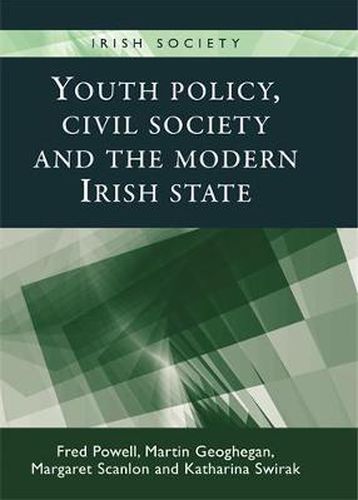Readings Newsletter
Become a Readings Member to make your shopping experience even easier.
Sign in or sign up for free!
You’re not far away from qualifying for FREE standard shipping within Australia
You’ve qualified for FREE standard shipping within Australia
The cart is loading…






This book explores a remarkable cultural contradiction in Irish youth policy, where largely volunteer based youth organisations in civil society provide a vibrant service on slender resources - in contrast to the abuse and neglect of youth by Church and State. The authors demonstrate a sharp contrast between the altruism of the voluntary and community sector, compared with a Leviathan State that lacks a social conscience and a Church that lost its moral compass in the pursuit of social power and political influence. This is not, however, an account of a ‘Big Society’ success, but a harrowing story of neglect, abuse and human rights violations in a country without a welfare state ethos. Ireland has been, in practice, for many of its most vulnerable citizens a diswelfare state. Children and young people in the modern Irish State have experienced dehumanisation and existential dread in state institutions, characterised by beatings, starvation, sexual abuse and economic exploitation. Voluntary youth organisations have struggled to provide welfare in a cold climate, seeking to support disadvantaged young people in the community, while largely funded (apart from targeted projects) as a ‘Cinderella service’. At the beginning of the 21st century this cultural legacy has become the other face of the Irish crisis. This masterful work of social and political analysis, based on a national study of youth and funded by the Irish Research Council for the Humanities and Social Sciences (IRCHSS) , will be vital reading for all social science students, practitioners of youth and community work, social workers policy-makers, social researchers, historians, and active citizens, who think there is such a thing as society and that it is worth preserving in the interests of a democratic civilisation based upon human rights.
$9.00 standard shipping within Australia
FREE standard shipping within Australia for orders over $100.00
Express & International shipping calculated at checkout
This book explores a remarkable cultural contradiction in Irish youth policy, where largely volunteer based youth organisations in civil society provide a vibrant service on slender resources - in contrast to the abuse and neglect of youth by Church and State. The authors demonstrate a sharp contrast between the altruism of the voluntary and community sector, compared with a Leviathan State that lacks a social conscience and a Church that lost its moral compass in the pursuit of social power and political influence. This is not, however, an account of a ‘Big Society’ success, but a harrowing story of neglect, abuse and human rights violations in a country without a welfare state ethos. Ireland has been, in practice, for many of its most vulnerable citizens a diswelfare state. Children and young people in the modern Irish State have experienced dehumanisation and existential dread in state institutions, characterised by beatings, starvation, sexual abuse and economic exploitation. Voluntary youth organisations have struggled to provide welfare in a cold climate, seeking to support disadvantaged young people in the community, while largely funded (apart from targeted projects) as a ‘Cinderella service’. At the beginning of the 21st century this cultural legacy has become the other face of the Irish crisis. This masterful work of social and political analysis, based on a national study of youth and funded by the Irish Research Council for the Humanities and Social Sciences (IRCHSS) , will be vital reading for all social science students, practitioners of youth and community work, social workers policy-makers, social researchers, historians, and active citizens, who think there is such a thing as society and that it is worth preserving in the interests of a democratic civilisation based upon human rights.